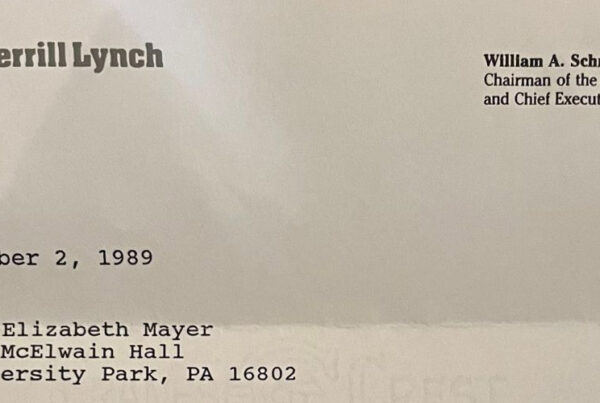
I am about to go on a road trip. It is time to clean out the trunk and of course pack all the goodies. What do I find? My trusty CB radio (citizen’s band radio). It provided so many fond memories of road trips, being a four-wheeler in the land of truckers, and the lessons from my Uncle Henry.
Ahhhh, the nostalgia. Before mobile phones, I used the CB to get traffic, weather, accident, and yes, police radar information. My name or handle as they call it in CB lingo is Silver Bullet, as I am driving a silver car.
My Uncle Henry first exposed me to the CB when I was around 10 years old. He owned his own business and was on the road nearly every day meeting with customers. I remember riding in his car listening to him talk on the CB, while he was trying to sound like a trucker. Why? Because trucker’s did NOT like talking to a four-wheeler. In fact, to help mimic the trucker’s powerful CB radios, which tended to make the voice deeper, Uncle Henry would drop his voice an octave or two as well. Marc, my cousin, and I would laugh at this. For years we made fun of him about that—of course only when we got older, bigger, and bolder (smile).
While in Uncle Henry’s four-wheeler, he was always quite stern before the car trip started with Marc and me. He wanted to ensure 1,000% that we would not talk while he was on the CB, giving away his secret identity of being a four wheeler. When we were allowed to talk, we would ask questions like, “What did that mean?” “When do you say that phrase?” “Why did the trucker say that?” and “When is it our turn?”
Not until I became older, much older, did I realize the valuable lesson my uncle taught me. He never explicitly said it as I would guess, he thought Marc and I wouldn’t understand as 10-year olds. “It’s always about them. It’s always about your audience.”
Jargon is Unique to Your Community
The language of the CB, like any professional slang, lingo, and jargon is unique to its community. I remember the very first time I used my CB; it was on my way to college. I was a week shy of 18, impressionable, nervous, and concerned the truckers would discover the impostor and tell everyone for miles around there was a four-wheeler pretending to be a trucker.
As I started to listen, learn, and dip my toe into the CB pool water, I became more confident in my abilities.
When I first started using the CB, I was clueless, frustrated, lost, and even at times, slightly agitated. When I was just beginning to believe I got the hang of things, I would find that I didn’t know something else. The jargon, unique to the truckers, was soooo frustrating.
Sound familiar? It’s just like our world of business. We are bombarded with hundreds of advertising and sales messages every day, all competing for our attention. When you have the chance for one-on-one communication, make it count. Social networking, websites, parties, telephone calls, emails, blogs, podcasts, advertising, and every type of communication imaginable have the potential for someone to say, “Wow, tell me more.”
It is unfortunate that most business stories are flat, lack passion, and are complicated.
When you answer the question, “What do you do?” does your answer evoke a “Huh” or a “Wow, tell me more” response? Does it resonate with the other person? Are you infusing your passion?
When you finish your 30-second answer (“elevator pitch”) does the person say tell me more with their body and actions? Body language examples would be a slight tilt to the head and eyes widening that indicate curiosity. And actions would be someone asking you questions that clearly demonstrate that the person was listening. I call these type of persons, whole body communicators. Think about this…you have jargon specific to your company, division, department, industry, partner, and experiences. How can someone possibly understand everything from the moment they meet you? They can’t. Most mainstream magazines and newspapers write between the 6th and 8th grade levels; the New York Times writes to the 10th grade level.
Why then, do most people talk at the 14th grade level? Of the thousands of people that I have met over the years at networking events, I can confidently say, nearly everyone must simplify, simplify, simplify their messages. If your grandparents can’t understand what you are saying, it’s time to retool your story, elevator pitch, telephone script, networking script, website, marketing handouts, user manuals, proposals, presentations, you get the idea…
Keep slang, lingo, and jargon to an absolute minimum. Why? Because most often, your audiences WILL NOT understand your language until they have a chance to know you, learn from you, and trust you.
Advice for Using Your CB Radio
I scanned the Internet for a few fun sites with CB lingo. I included some of my favorite words and phrases from over the years. First, I wanted to share with you some insightful advice applicable to all of us from Woody’s World Of CB.
“The list below represents just about every CB-ism you’ll run across. Please keep in mind that if you jump on the air with a sentence full of slang words and phrases below you’ll sound like an idiot. These are words that you’ll run across throughout a variety of conversations, and it’s helpful to know what they mean. My best advice I can give you is:
1) Listen well before you speak, many parts of the country differ on their protocols and terminology
2) Always be polite
3) Minimize the “Slang.” When you talk to someone on the radio, use it like you would a telephone.”
CB Lingo and Slang
- Alligator: Piece of shredded tire lying in the road and on the shoulder (the tire pieces look like alligators sunning themselves), e.g., look out for the alligators at mile marker 26.
- Ballet Dancer: A trucker’s CB antenna that really sways in the wind and as the truck drives
- Bear or Smokey Bear: State Trooper, e.g., “you got a bear about a mile back on your back door”
- City Kitty: City police officer
- Chicken Coop: The state weigh stations that check for trucker law and safety violations
- Double Nickel: Refers to the speed limit, 55.
- Evil Knievel: Motorcycle cop
- Four Wheeler: Anyone who is not a trucker and generally refers to a car.
- Go Juice: Fuel
- Hammer Lane: Left lane of traffic, the passing lane.
- Handle: Your nickname that you use while on the CB. “Thanks, all good numbers to you. Silver Bullet out.”
- Latrine Lips: Person who uses foul language, a potty mouth.
- Mobile Mattress: Four-wheeler pulling a camper.
- Ten-Four: Affirmative answer or statement—yes or okay.
- Too Many Eggs In The Basket: Truck is overweight.
Further Reading on Simplifying, Messaging, and Building Relationships
- Talk at the 10th Grade – Simplify Your Communication (read)
- Leave Your “But” Behind – Strengthen Your Communication (read)
- The Wilted Spinach Test – Do Your Content and Messages Relate and Resonate? (read)
- 3 Communication Strategies to Attract and Keep Great Customers (read)
- Building a Relationship? Give Options for BOTH Coffee and Lunch (read)
- Say What You Want, Say it in Under 30 Seconds (Elevator Pitch) (read)
- I’ll Create My Own Story When Yours is Confusing (read)
Photography Header Source: Flickr User Andrew (meatbell)
#chiefstoryteller #storytelling #communication #executivecommunication #coaching



